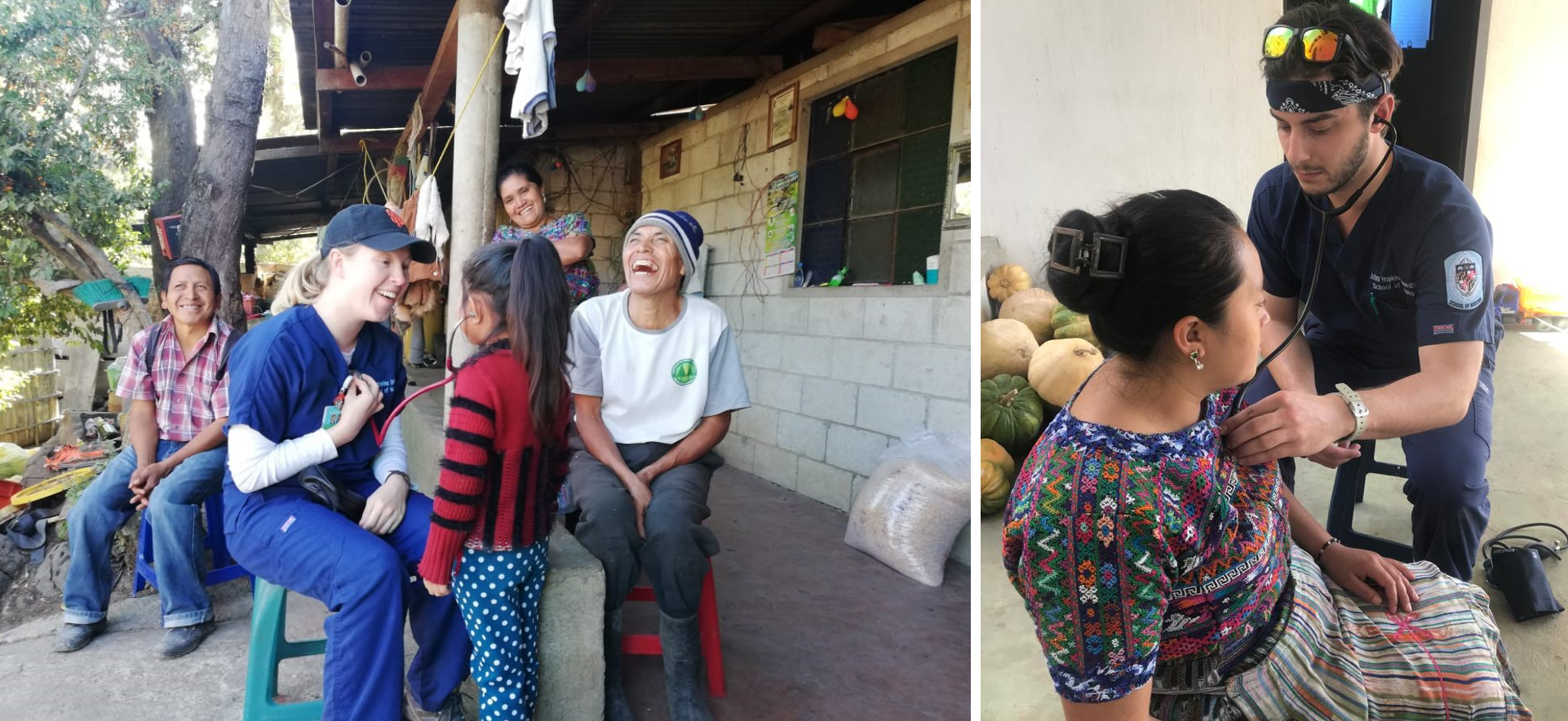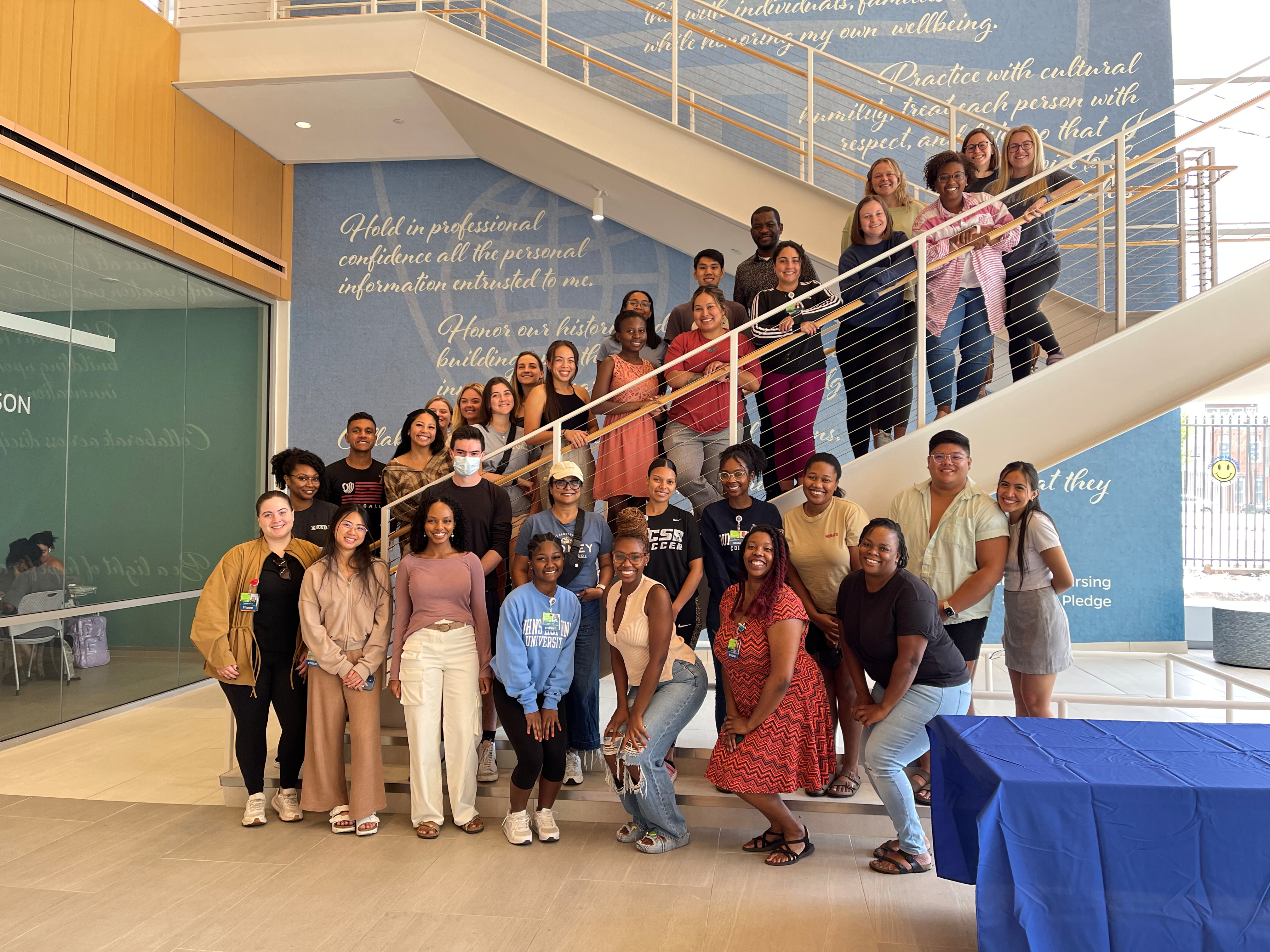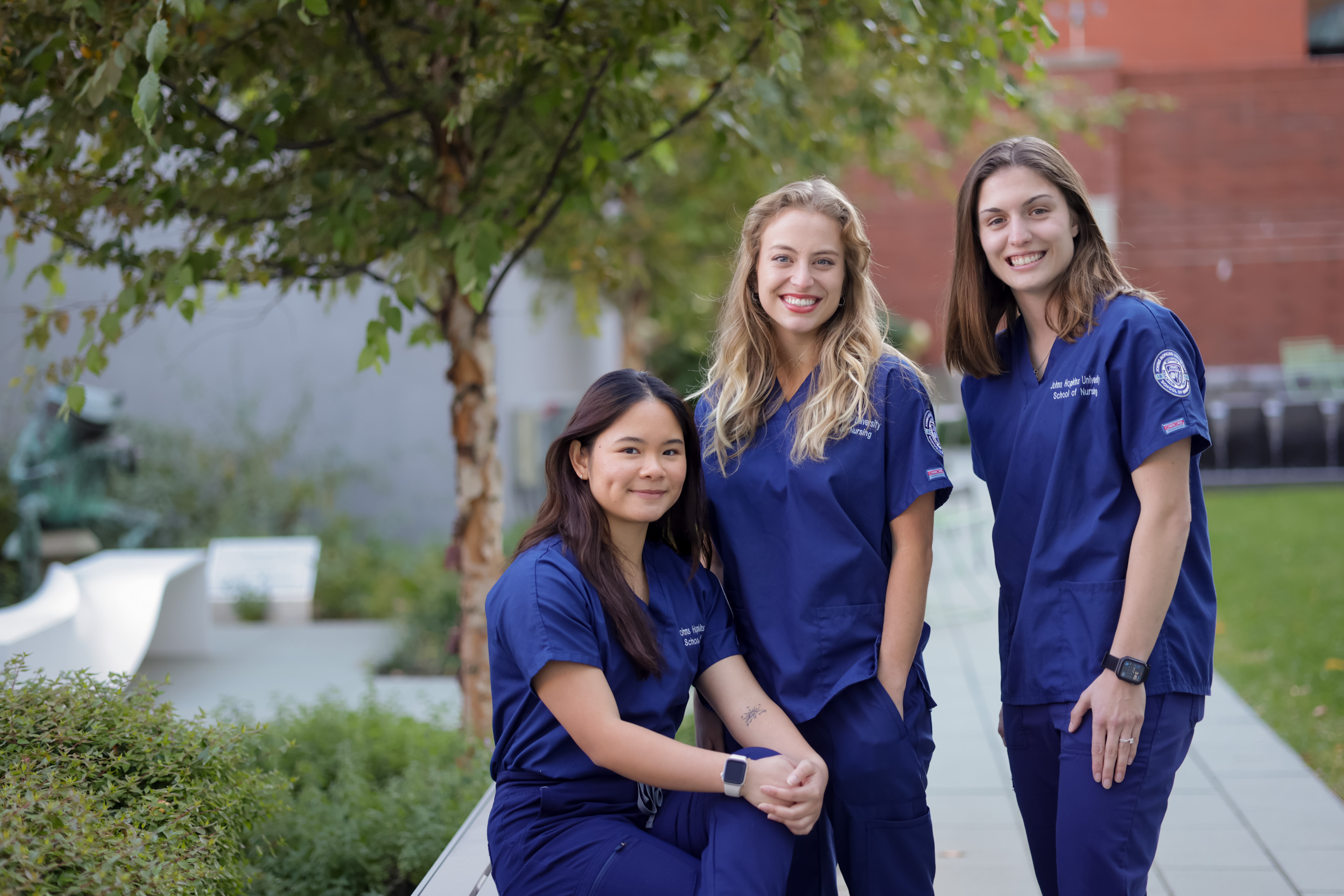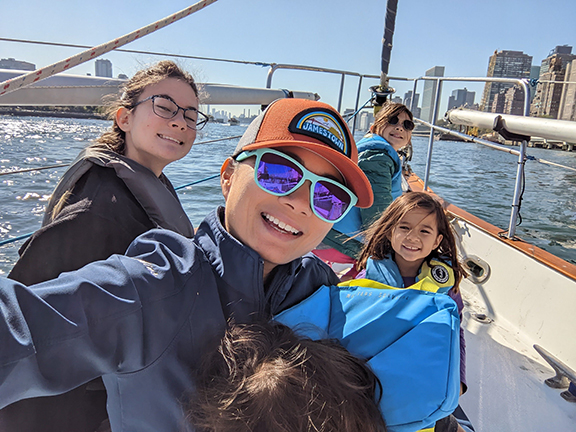Michelle Patch, PhD, MSN, APRN-CNS, ACNS-BC, is the newly selected coordinator for the Doctor of Nursing Practice (DNP) Clinical Nurse Specialist (CNS) tracks at the Johns Hopkins School of Nursing—recently ranked No. 3 by U.S. News & World Report.
Dr. Patch is an expert on intimate partner violence and patient and staff safety. She’s a Hopkins nurse through and through—she earned her MSN as an Adult Health CNS with a forensic nursing certificate from JHSON then returned a few years later for her PhD in Nursing. And she even developed the emergency department safety role now in Johns Hopkins Hospital, and was the first to take it on.
Read on to learn about the CNS, and Dr. Patch’s journey from a Navy Fire Controlman — to clinician, safety officer, and now assistant professor.
Tell me about your journey to advanced nursing.
I’ve been a nurse for almost 20 years, beginning in the Navy. When I enlisted in 1994, I wanted to be a hospital corpsman, but that role was full. The Clinton administration had just opened up certain roles to women, and they trained me as a fire controlman, working with electronic weapons systems! But my ship was in the yards being outfitted with female berthing, so I maintained systems at a shore-based facility in San Diego for about a year, where I learned my Naval ROTC application had been accepted. I moved to Milwaukee, WI, attended Marquette University College of Nursing, and was commissioned as a naval officer upon graduation.
At my first duty station, Naval Medical Center Portsmouth in Virginia, I was assigned to the inpatient pediatric ward. There, I honed my clinical skills working with a variety of patients and families, everything except ICU. After that, I continued to gain experience as a staff and charge nurse in an adult inpatient psychiatry ward, then managing staff and clinic operations for an outpatient psychology unit. You learn pretty quickly to go where the Navy needs you.
I deployed to Kuwait for 6 months in 2004 to support Operation Iraqi Freedom, leaving my husband, who was active duty in the Coast Guard, and our 13-month-old daughter. There, I worked the night shift at the Kuwaiti Armed Forces Hospital as a medical surgical nurse for a month before transferring with an Army unit to staff the psychiatry clinic at Camp Arifjan. It was an incredible experience where I learned a lot about both the technical and adaptive skills needed in a theater of operations.
I returned home safely, transferred again to be the assistant manager of the family practice clinic at Branch Medical Clinic Sewells Point in Norfolk, VA. We soon learned we’d be welcoming a new addition to our family. With both of us active duty, a high operational tempo, and no family nearby to help, I decided to leave active duty and applied to JHSON’s forensic CNS program. My husband secured orders to Baltimore, I was accepted, and we moved our little family to Maryland!
Why did you become a CNS?
At that time, there were a lot of clinical nurse specialists in the Navy, and actually not as many nurse practitioners. I worked closely with them and knew the role meant being a direct care expert in a specialty area and population, and being able to support my nursing colleagues in practice, as well as lead organizational change. The chance to positively impact all of these areas really resonated with me.
Also, regardless of my practice area, I always gravitated toward cases with forensic implications: ones that involved child abuse, assault, or intimate partner violence. So, the JHSON program was a perfect fit for my professional interests. Also, being trained as an Adult Health CNS afforded me the opportunity to build a brand new position in the JHH ED, focused on safety for patients and staff, and later to work at the hospital and health-system level in patient safety where I still practice.
CNS are the lesser known of the APRN roles (along with nurse practitioner, nurse anesthetist, nurse midwife). Why is that? What makes them unique?
CNS is actually the oldest advanced practice role. You probably know several and don’t realize it. Although traditionally inpatient unit-based, we can be found in clinics, home health, palliative and end-of-life care, pharma, boards of directors, private industry, research, academia, and even the executive C-suite! It’s difficult to define CNS practice, but that’s what makes this role special. We are flexible and dynamic, adjusting quickly to the needs of patients, nurses and organizations.
We receive APRN training in advanced pathophysiology, pharmacology, and health assessment, as well as expertise in a particular patient population. But we are also very involved in regulatory compliance, quality improvement, patient and staff safety, staff education and ensuring evidence-based nursing practices are effectively implemented and evaluated.
We ask, what are the outcomes? How can we improve quality of care? Are patients getting better? As health care evolves from a volume-based system to a value-based system, and from hospitals to alternative care settings, as well as expansions in prescriptive authority and ability to bill for services, expect to see continued growth for clinical nurse specialists.
How does the DNP add to the CNS APRN?
You can still become a clinical nurse specialist through a master’s program, but the Doctor of Nursing Practice (DNP) allows for additional deep exposure and focused education. You learn advanced practice care for patients and about the bigger systems in place. And you have that mentored experience to take a deep dive into an independent project where you investigate clinical problems, develop a question, identify an appropriate evidence-based intervention, implement and evaluate it, all mentored by expert faculty. A practice doctorate also allows for great breadth of practice options, preparing you at the highest level to affect change and improve patient outcomes.
What has the CNS role looked like amid the COVID-19 pandemic?
Clinical nurse specialists have been integral on the frontlines of the pandemic. We’re setting up COVID units, advising and training nurses for new skills, implementing interventions for patients, leading organizational efforts to provide the best care for patients, families and our healthcare colleagues. Things change hour by hour. There are CNSs on the ground with advanced skills able to able to support staff, patients, and families at an organizational level, and get front lines teams the information and resources they need.
How do CNS roles contribute to hospitals’ magnet designation?
Clinical nurse specialists are expert clinicians, communicators, consultants, evidence based practitioners, and they make a big difference to nursing teams, organizations, and to patients and families. CNS identify, evaluate, and implement system-wide process improvements, ensuring nurses have a strong voice in patient care decisions, from the front lines to the boardroom.
Read more:
- Q&A with Dr. Kim McIltrot, New DNP Program Director
- What is a Clinical Nurse Specialist?
- Career Outlook of a CNS
ABOUT THE AUTHOR: SYDNEE LOGAN

Sydnee Logan, MA is the Sr. Social Media and Digital Content Specialist for Johns Hopkins School of Nursing. She connects Hopkins Nurses with the world.

 Guatemala Re-visited: Rainwater Project Shows Value of Service-learning Trips
Guatemala Re-visited: Rainwater Project Shows Value of Service-learning Trips Awards for Diversity
Awards for Diversity The Learning Collaborative: ‘I Think I Can, I Think I Can …’
The Learning Collaborative: ‘I Think I Can, I Think I Can …’ Military to MSN and Back: A Select Few
Military to MSN and Back: A Select Few Sea Change for DNP Student
Sea Change for DNP Student







